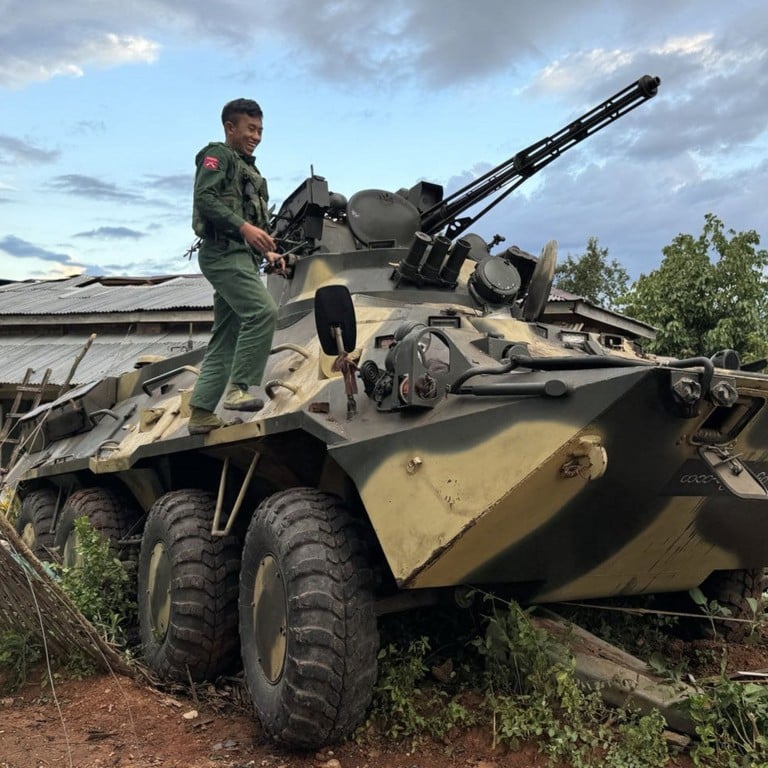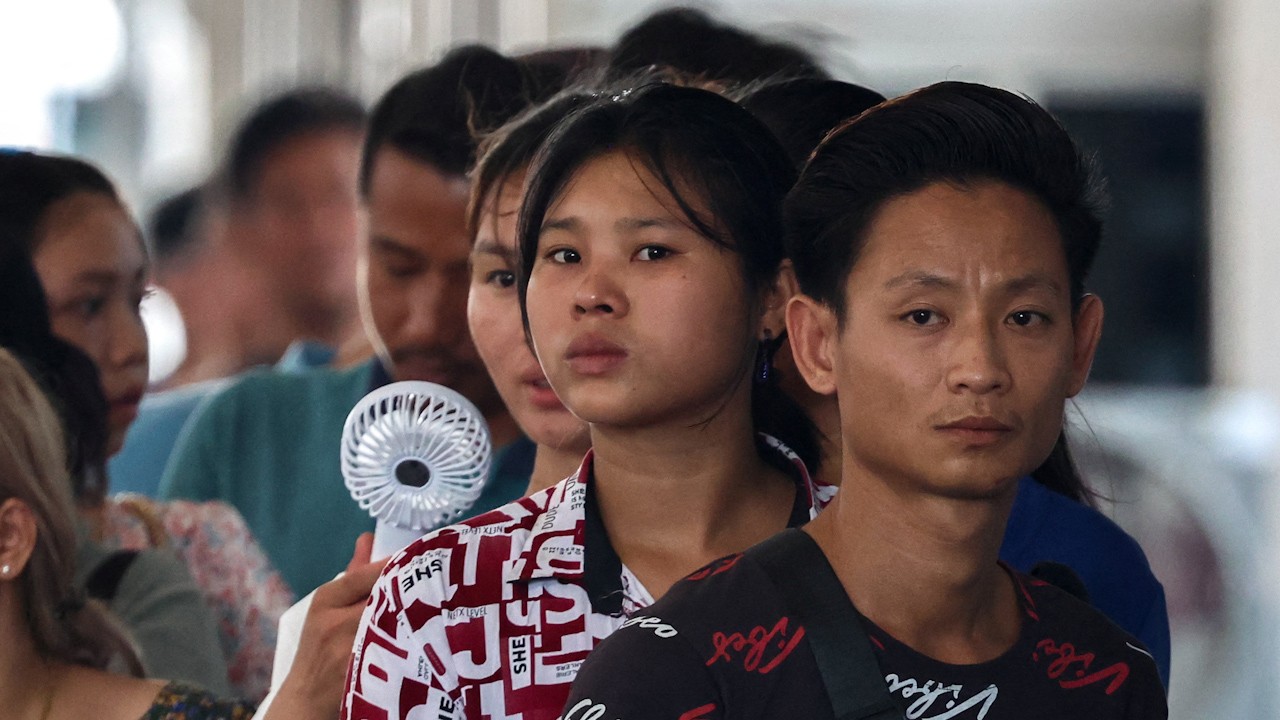
China holds another live-fire drill along Myanmar border as concerns over rebel uprisings grow
- People’s Liberation Army conducts air defence exercise amid fighting between Three Brotherhood Alliance and Myanmar’s military junta
- Several people in China’s Yunnan province have been wounded by aerial fire exchanges from over the border
The drill, which began on Wednesday, was organised by the PLA’s Southern Theatre Command and is a live-fire air defence exercise involving both ground and air forces, according to the theatre command’s WeChat account.
It said the drill tested the forces’ abilities in “air-defence capacity, reconnaissance, early warning, and repulsion”.
China military on ‘high alert’ at Myanmar border after live-fire drill ends
This is the third such live-fire drill Beijing has made public since an alliance of rebel groups in northern Myanmar launched an offensive against the country’s military junta last October.
Earlier this month, military mouthpiece PLA Daily said the war had “seriously threatened” security and stability in the border region, adding that the Chinese army would take “all necessary measures” to protect the safety of its people.
It repeated China’s calls for a ceasefire, urging “relevant parties to maintain maximum restraint and continue to resolve issues through dialogue and negotiation”.
The Three Brotherhood Alliance, a coalition of three rebel militias in northern Myanmar, began conducting strikes in late October, posing a major challenge to the military junta that overthrew the country’s democratically elected government in 2021. Myanmar’s Shan state, which borders China, is the main battleground in the unrest.
China has repeatedly raised concerns about the security of the border region.
Several people in China’s Yunnan province, which shares around 2,000km (1,240 miles) of border with Myanmar, have been wounded by aerial fire exchanges originating in the Southeast Asian country.
In January, Beijing said it had brokered a ceasefire between Naypyidaw and the rebel alliance, but the junta reportedly breached the deal a day later.
China has maintained public official exchanges with the junta government since the fighting began.
Chinese Minister of Public Security Wang Xiaohong visited Naypyidaw and met junta chief Senior General Min Aung Hlaing days after the conflict began in October.
Chinese foreign vice-minister Sun Weidong also held a series of talks with Min Aung Hlaing in January.
United Nations reports in 2022 and 2023 accused China of providing arms for the junta’s efforts to overthrow the democratic government – an accusation Beijing rejects.
Beijing does not label the junta’s removal of the elected government in 2021 as a “coup”.
Despite the anti-junta combat continuing in northern Myanmar, Beijing has continued its cooperation with Naypyidaw to crack down on cyber scams in the country, which frequently target Chinese nationals.
More than 800 suspected cross-border scammers were arrested in a joint police operation by Myanmar and China, Beijing’s embassy in Yangon said earlier this month.
Tens of thousands of scammers and some heads of criminal organisations have been arrested by police from the two countries since last year.


